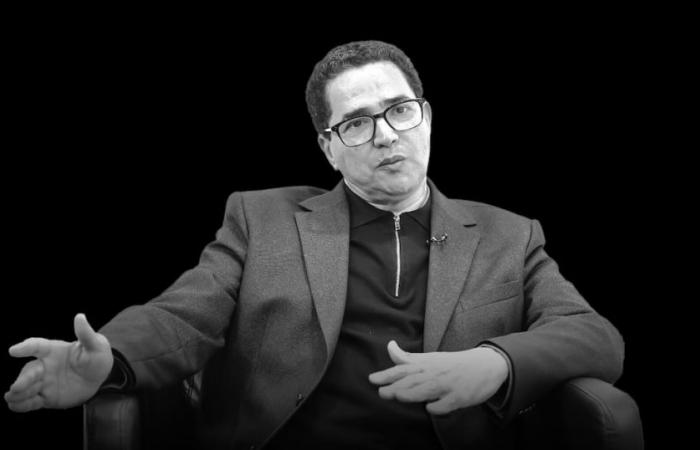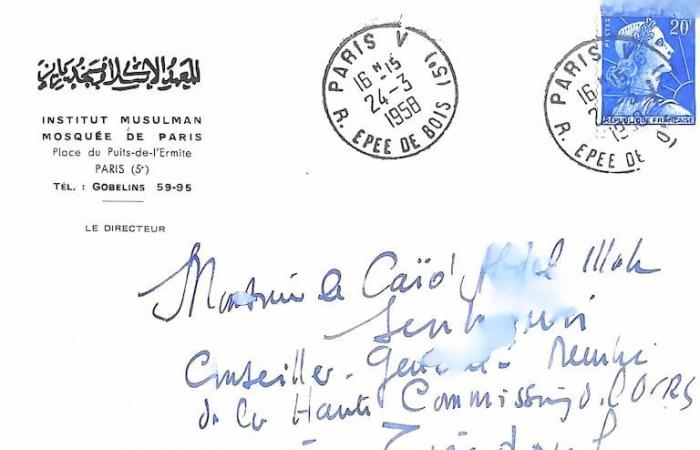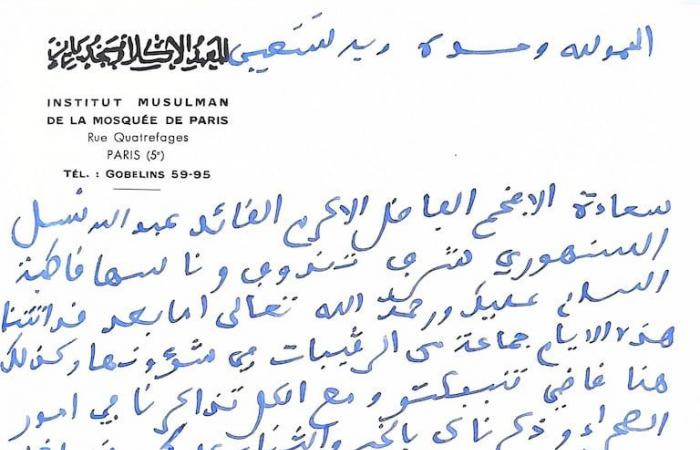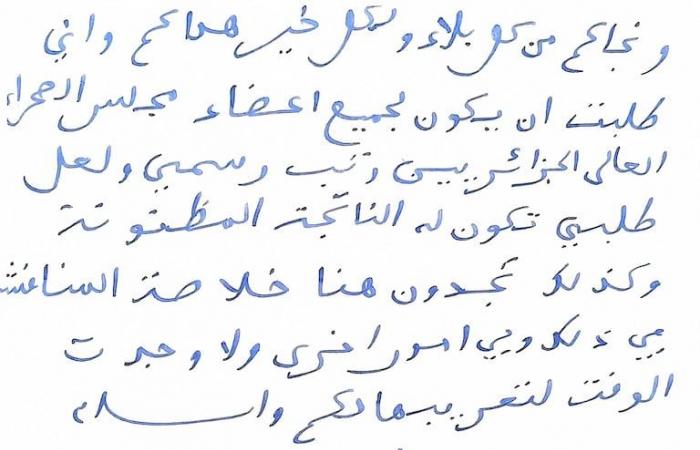In 1957, the Paris mosque became a key issue for the French State in its influence strategy on Muslim populations. Under the leadership of the Minister of the Interior François Mitterrand, Hamza Boubakeur was appointed rector, a controversial and disputed designation. To consolidate this stranglehold, the new rector removed the association of Habous, legitimate owner of the mosque, and replaced it with the association of friends of the Paris Mosque, thus offering the building to the French State.
This gesture was part of a broader strategy aimed at asserting a colonial appropriation of the mosque, already initiated in 1954. At that time, the French authorities had prohibited from praying on behalf of the Sultan Mohammed V, then in exile in Madagascar. Despite this ban, prayers for Mohammed V continued until 1957, causing maneuvers to end this tradition. A report dated November 1, 1957, orchestrated by an Algerian personnel manager, unjustly accused Imam Maati Achour of maintaining an independent Morocco:
This report, supported by the Boubakeur rector, aimed to present the mosque as a strictly French work and to erase any link with Morocco. Even before the independence of Algeria, Algerian agents were at work to erase the Moroccan heritage of the Paris Mosque.
Hamza Boubakeur: a future president to whom the “Sahrawi Republic” has been promised
Before taking the reins of the mosque, Hamza Boubakeur played a central role in French colonial projects in the Sahara. Member of the Department of Saoura, he was a fervent defender of the common organization of the Saharan regions (OCRS), an entity created by France in 1957 to control the Saharan resources. As a reward for his efforts to rally the Saharan tribes to this project, he was promised the presidency of a “Sahrawi Republic”. This entity would have included the territories of its own tribe, the Ouled Sidi Cheikh, as well as those of the Hamyan, Doui-Meniaa and Châambas.
However, these territories, historically Moroccan according to Moroccan archives, Ottomans and French, were the subject of disputes. The colonial authorities themselves recognized that the Saoura region had been Moroccan before 1901. Even the chief town of the Boubakeur tribe, El Bayadh (formerly El Biodh), belonged to the west Moroccan according to the treaty of Lalla Maghnia signed in 1845.
The promise of a Saharan presidency never happened. In compensation, Hamza Boubakeur was appointed rector of the Paris Mosque. But this appointment, described as fraudulent, was strongly criticized. A letter from the Moroccan Foreign Ministry denounced this manipulation, strengthening tensions between France, Morocco and the Saharan populations.
I’m writing to you … tindouf
An exchange of mail even takes place between Hamza Boubakeur and the Tindouf Caïd, Abdellahi Ould Senhouri, from 1958. In one of the correspondences, the rector of the mosque promises to Ould Senhouri, as well as to the members of the Council of Sahara a… fixed salary! He underlines that he awaits the agreement of the competent authorities to adopt the proposal.
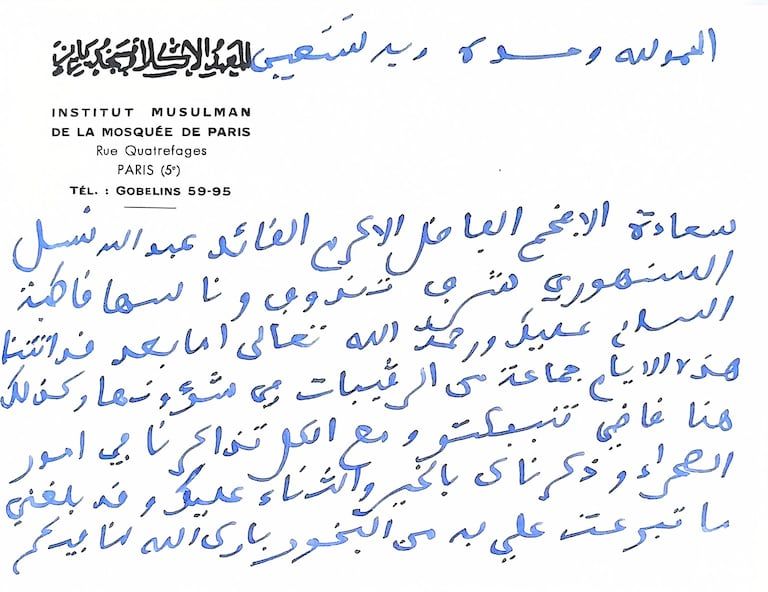
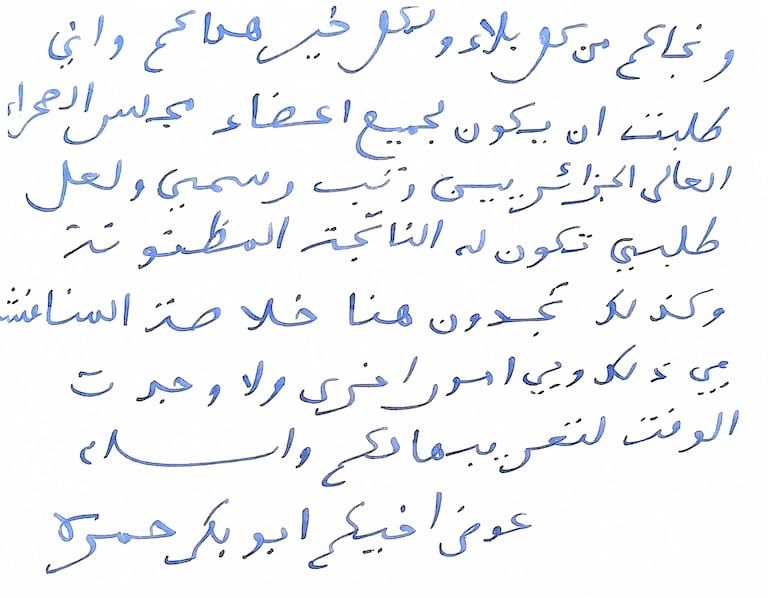
The Paris Mosque: a colonial propaganda tool
-Once in office, Hamza Boubakeur continued to erase historical links between the Paris Mosque and Morocco. Under his direction, the statutes of the Société des Habous were modified in 1973 to guarantee a sustainable French takeover. Article III of these new statutes stipulated that the company was the exclusive owner of all the works of the mosque, including the Muslim Institute, the Hotel of Mecca and the appointments of imams in France. More significantly, in the event of dissolution, the heritage would be transferred to the town hall of Paris, and failing that, at Al-Azhar University in Egypt.
These changes definitively moved away from Morocco from all influence on the mosque, already used as a colonial propaganda tool. Sadek Sellam, specialist in Islam, will write later: “Socialists prefer to approve the agreement by which Hamza Boubakeur entrusts the mosque to the Algerian government, thus opening the way to a multi-state of the management of Muslim worship in France, which reduces Muslims from France to the State of “non-people” ” (Sadek Sellam, “Abdelkader Barakrok (1915-2006), former secretary of state in Algeria”, World War and Contemporary Conflicts 2007/1, n ° 225).
An ambiguous role in the Sahara and Rguibat separatism
In addition to his religious role, Hamza Boubakeur also played a strategic role in the Sahara. In collaboration with the colonial authorities, he was responsible for maintaining relations with the notables Rguibat in Tindouf, encouraging them to adopt an anti-Moroccan policy. These maneuvers aimed to weaken Moroccan claims in the Saharan regions.
However, Boubakeur’s political ambitions died with the independence of Algeria. He tried to reposition himself by looking for a diplomatic post, hoping to become ambassador. His candidacy was rejected due to a lack of skills, which forced him to remain rector until 1982.
An end of career marked by disillusions
In the 1980s, Hamza Boubakeur, known for his privileged relations with French socialists, opposed any reform of the statutes of the Habous Society. He ended up entrusting the management of the mosque to the Algerian government, a gesture perceived as a betrayal by many Muslims in France.
Having failed to achieve his political ambitions and to keep his promises towards the Saharan tribes, Hamza Boubakeur ended up getting closer to Algeria, a country which he had long fought in the context of French colonial projects. This rapprochement symbolized a career marked by successive betrayals: towards its tribe, the Saharan populations, Morocco, and even France, to which it had its ascent.

